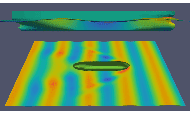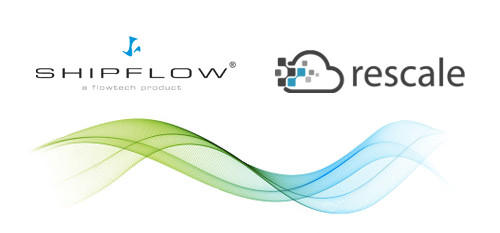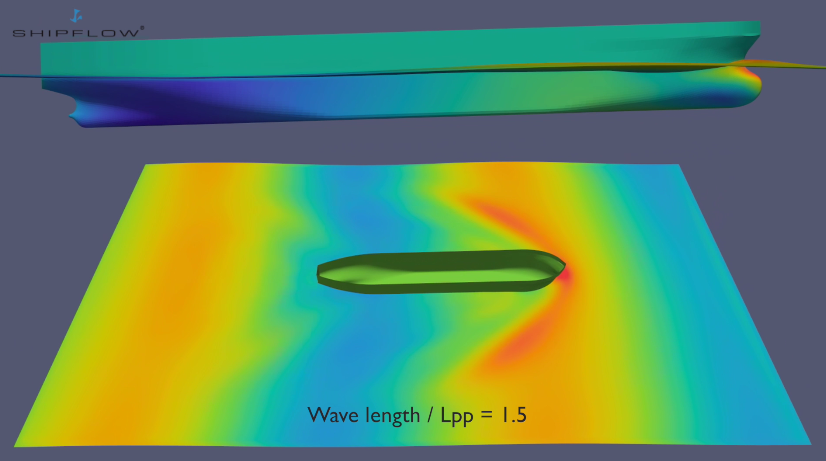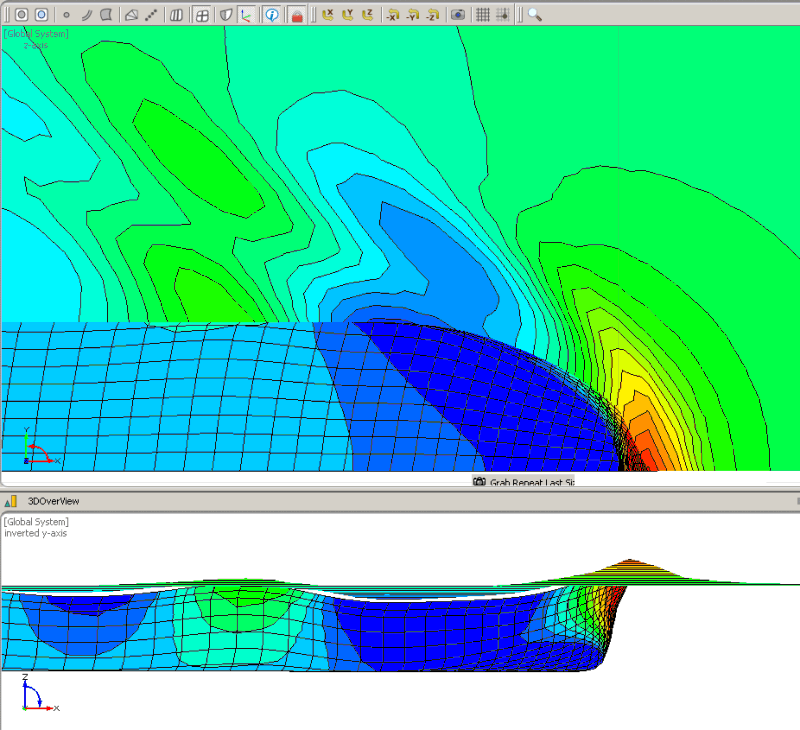Workshop on ship performance
Seoul, Korea April 14, 2016

In this workshop we will demonstrate how Computational Fluid Dynamics (CFD) can be used to optimize the ship performance. The first part of the workshop will cover computation of ship motions and added resistance in waves, and the second part will cover automatic shape optimization for minimum delivered power. The presenters will show examples of these applications and discuss how it can be implemented in the design process using the new efficient techniques in SHIPFLOW 6.
Read more ...
Webinar:
Accelerate SHIPFLOW Simulations on Rescale's Cloud Platform
Date: Wednesday, March 2nd, 2016
Time: 8:00AM PDT / 5:00PM CET
Duration: 60 minutes
Read more ...

SHIPFLOW MOTIONS seminar and training
This is a seminar for you who wants to learn more about computing ship motions in waves and added resistance with SHIPFLOW MOTIONS. It’s a one day seminar that will cover applications, theory and hand-on exercises. Previous experience from SHIPFLOW is not required.
Date: Wednesday February 3, 2016, 09:00 – 16:30
Place: Flowtech (SSPA building), Chalmers Tvärgata 10, Gothenburg, Sweden.
REGISTER BEFORE JANUARY 27.
Register to info@flowtech.se or call +4631410506. The number of seats are limited.
Application of SHIPFLOW MOTION to hull optimization
Nowadays most of the ship hulls are optimized in calm water. However, reducing added resistance in waves can be the key to the optimum performance of a ship. In the second article we show a comparison of two bow types for a typical VLCC hull form using CFD. Calculations have been performed with MOTIONS module of SHIPFLOW 6.1
The article is called Performance in waves – part 2 and can be found in under the menu Cases.
Article on SHIPFLOW MOTION validation
The first published article in a series of articles on ship motions and resistance in waves. It contains a validation case based on KVLCC2. Calculations have been performed with MOTIONS module of SHIPFLOW 6.1
The article is called Performance in waves – part 1 and can be found in under the menu Cases.
 SHIPFLOW 6.1
SHIPFLOW 6.1
The two major news are:
- Improved performance of SHIPFLOW MOTIONS by 5-10 times and less memory requirements.
- Automatic treatment of the transom condition in MOTIONS.
- The grids are automatically adjusted for full scale Reynold numbers.
Scale effects
A second article on shape optimization of ship sterns is now available. It demonstrates the necessity of optimizing the ship stern at full scale for the minimum delivered power. The delivered power is computed with CFD computations of the self propulsion directly at full scale.
The article is called Optimization of ship sterns – part 2 and can be found in under the menu Cases.
Resistance and propeller efficiency
The first published article in a series of articles on shape optimization of ship sterns with CFD has been released. It demonstrates the importance of optimizing for the delivered power rather than the resistance which can be misleading. This requires the computations of the self propulsion with CFD that can be very computational demanding. However, it is shown that with the new fast solver in SHIPFLOW 6 the optimizations can be performed on a modern workstation or in a small cluster.
The article is called Optimization of ship sterns – part 1 and can be found in under the menu Cases. Read also part 2 on scale effects for optimization of ship sterns Optimization of ship sterns - part 2
Automatic optimization of a ship bow using CFD
Extreme bow modification example using automatic optimization. The hull modification was set up with partially parametric model using surface delta shift feature in CAESES / Friendship-Framework. Wave resistance computed with SHIPFLOW.


SHIPFLOW users can now perform simulations on the Rescale cloud high performance computing (HPC) platform. This gives users the ability to immediately scale up their computer resources during computation intensive periods. Smaller organizations will also find it beneficial to use an agile, pay-on-demand pricing model that allows them to compete in the engineering and science markets without having the large capital expense of building out an internal cluster.
Read more ... CFD for ships - SHIPFLOW 6.0 released
CFD for ships - SHIPFLOW 6.0 released
The two major news are:
- SHIPFLOW MOTIONS, a new CFD solver for sea keeping.
- The RANS solver XCHAP is now 10 times faster compared to the current release.

